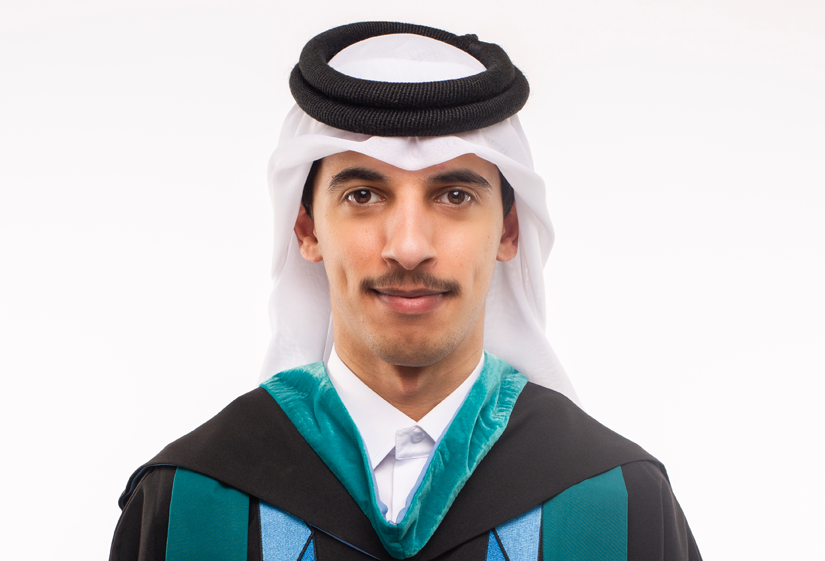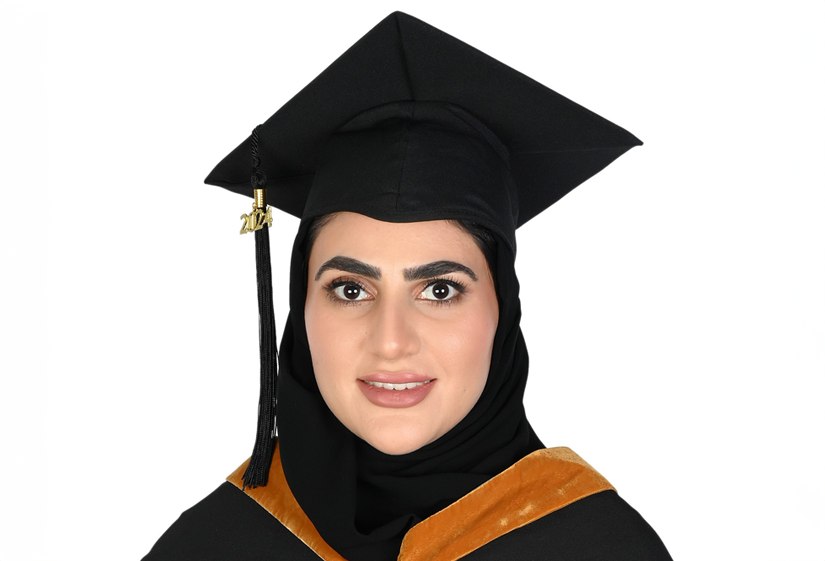Cadre of 62 nationals utilize degrees to tackle critical scientific, technical, and societal challenges

With Qatar currently playing the critical role of mediator in various conflicts, Qatari students from Hamad Bin Khalifa University’s (HBKU) graduating Class of 2024 seek to join their country in addressing serious concerns over a rise in conflicts and social upheaval affecting so many communities around the world.
Each has pursued degree programs that will enable them to become catalysts for change across a spectrum of scientific, technical and societal challenges, with each tackling critical issues including bolstering national cybersecurity, facilitating intercultural dialogue, advancing precision medicine research, and more.
Abdulrahman Mohammed M S Al-Shafi, a graduate from the College of Public Policy’s Master of Public Policy program, pursued his degree so he could augment his work as the National Cyber Security Agency’s (NCSA) Cyber Security Strategies and Policies Director and better contribute to the protection of Qatar’s cloud data sovereignty.
Underscoring his belief that safe, secure, and sovereign cloud data contributes to a more harmonious and equitable society, Al-Shafi said: “Enhanced accountability and transparency in data handling practices foster integrity and ethical conduct, mitigating potential conflicts. It also facilitates digital inclusion, enabling broader participation in the global economy and promoting economic growth and cooperation. If this sovereignty is compromised, it could undermine privacy and security leading to an erosion of trust among individuals.”
From his position at the NCSA, Al-Shafi is positioned to not just protect Qatar’s digital infrastructure, but also bolster the country’s growth as a regional leader in the field of data sovereignty. “We were one of the first countries to introduce a Personal Data Privacy Protection Law (PDPPL) back in 2016. Why should we not aspire to utilize our infrastructure, resources and expertise to lay the required conditions for advancing peace and humanity in our societies?”
 Through her research project, Maryam Al-Malki, a graduate from the College of Humanities and Social Sciences’ Master of Art in Intercultural Communication program, seeks to contribute to the preservation of Qatari culture by documenting the history of pearl-diving in the country.
Through her research project, Maryam Al-Malki, a graduate from the College of Humanities and Social Sciences’ Master of Art in Intercultural Communication program, seeks to contribute to the preservation of Qatari culture by documenting the history of pearl-diving in the country.
Underlining the significance of this tradition to the formation of the Qatari community, Al-Malki said: “The art of pearl-diving necessitates trust and cooperation to ensure practitioners’ survival - a level of commitment borne out of a desire to ensure the economic well-being of their people. The fabric of Qatar’s pearl-diving community is built on shared traditions, challenges, and aspirations, which offer lessons on how we can reinforce the solidarity necessary for constructing peaceful societies.”
With her research underlining how cultural identities can promote interconnectedness among communities and nations, Al-Malki is aiming to employ her expertise as an ambassador for Qatari culture and promote intercultural dialogue and understanding - a critical aspect of the fields of conflict mitigation and peacebuilding.
Shaikha Mohammed S J Alhassan, a graduate of the College of Health and Life Sciences’ Master of Science in Genomics and Precision Medicine program, is determined to join the global fight against breast cancer and operate at the cutting edge of research in this field.
Alhassan’s research project focused on bettering our understanding of triple negative breast cancer - a subtype that is characterized by a younger age of diagnosis and higher risk of recurrence.
Highlighting her hope to expand upon her work and become an advocate for breast cancer awareness, Alhassan said: “Breast cancer is the most common diagnosed cancer and leading cause of cancer related deaths in females worldwide. Studies have noted higher incidence and mortality rates in the Arab region than globally, so we need to keep refining our cancer screening and cancer management strategies.”
“In the future, I am interested in exploring whether women's awareness and breast cancer screening differs globally, possibly due to cultural norms and socioeconomic status. I wish to understand whether the impact of such initiatives are evenly felt across the world and bring attention to them if this is the case.”
Al-Shafi, Al-Malki, and Alhassan are among 62 Qatari graduates from HBKU's Class of 2024 whose collective body of work and aspirations reinforce why education is an essential feature of a culture of peace and the protection of humanity. Acting in its role as a national university, HBKU nurtures a unique learning environment that naturally reinforces Qatar’s strategy to invest in human capital and economic diversification by providing students with the knowledge and skills to solve critical challenges at home and beyond.





